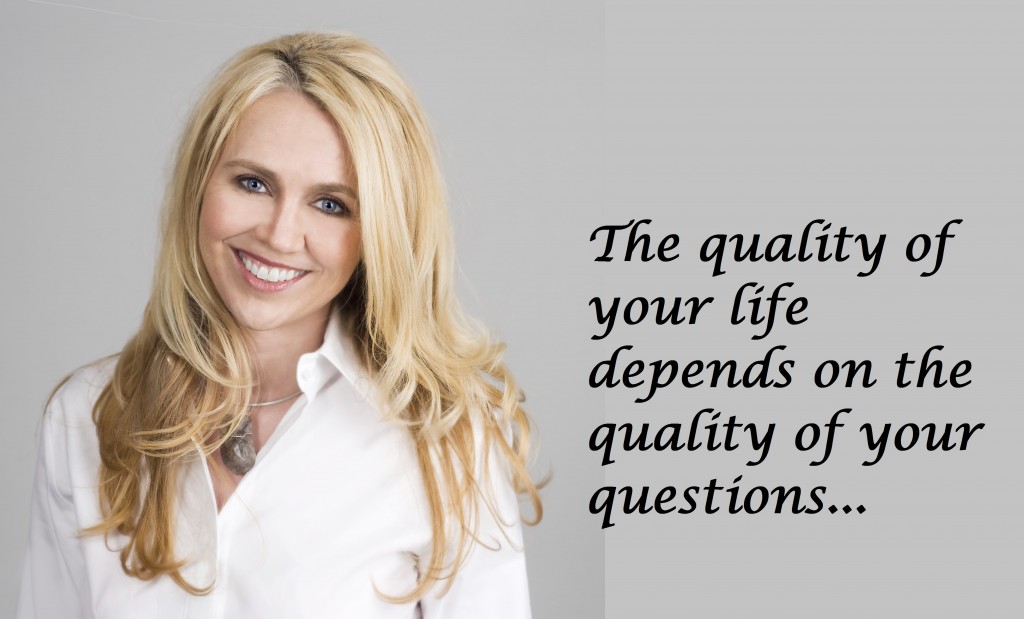
It’s impossible to pick up an industry publication without encountering headlines that scream “automation will eliminate most of what you do in your practice in the next decade”.
The concern is a very real and global one – it affects every industry, not just accounting. Proof in point, a 2013 research study estimates that nearly half of employment in America is at high risk of becoming automated in 10 to 20 years, with the accounting profession ranking in the top six of the most automatable occupations.
According to an Australian research paper released by the Centre for Economic Development of Australia (CEDA), “in the next decade there is a high probability that occupations such as accountants, estate agents and even economists will not exist or will be significantly depleted.”
The researchers even go so far as to hypothesise that 94 per cent of what you do right now as an accountant or bookkeeper will be replaced by machine learning and artificial intelligence by 2030.
That is only 13 years from now.
And it’s precisely why thought leaders, industry bodies, and training organisations are urging you to focus on making the shift to advisory.
While some would have you believe that talk of jobs and revenue lost is just simple fear mongering, many firms are right now seeking to move away from backward-looking compliance work (work that describes what has happened in the past and present) which is increasingly being automated by cloud accounting packages and apps. These firms are exploring new value-added advisory services that are not so easily automated and are forward-looking (helping the client to anticipate and deal with change, challenges and opportunities).
These advisory services, can help accounting and bookkeeping firms to future-proof their practices and create faster-growing, recurring, or high-margin revenue streams that make it easier to let go of compliance work.
So, it begs the question, if the future of our industry is cloudy, how many firms are already providing advisory services and what is real the outlook/potential for our industry?
A recent survey by Sageworks found that while many practitioners would like for a large share of their revenue to come from advisory services, the reality is that for many, very little revenue is actually derived from strategic, consultative or advisory work.
Participants of this survey were asked two questions:
- what percentage of firm revenue comes from advisory/consulting work? and
- what percentage would they like to come from advisory work?.
The graph showing the responses to each question are virtual mirror images of each other. While many would like to offer advisory services, most are in fact not doing so today.

Surprisingly, nearly half of respondents said less than 10 per cent of revenue comes from advisory/consulting work, and more than two-thirds put the estimate at less than 20 per cent of revenue. Only 13 per cent said 40 per cent or more of revenue is advisory/consulting.
As for the first question – how much they’d like to come from consulting/advisory work – nearly half of respondents said 40 per cent of revenue. The majority of the respondents said they’d like at least 30 per cent to come from strategic, consulting, and/or advisory.
Unfortunately, our industry and the way we educate and train new recruits is focused on technical skills, legislative changes, and GAAP processes. These establish you as an expert but they are not enough to elevate you into the realm of coaching, consulting or advisory. When you sit down to advise your clients, it’s just too easy to fall into the trap of “explaining accounting” and focusing on ‘what’, as opposed to focusing on the specific steps and strategies your client must implement to grow safely and profitably.
Compounding this, there is very little training in university, on the job, or in our industry bodies to show you how to make the shift into advisory. Contrary to popular belief, advisory is not about selling dashboards, forecasts or apps. It’s about connecting with your clients and communicating in a way that gains leverage and influences them to take action to improve their results.
Right now you are facing a cloudy and uncertain future. Doing nothing is no longer an option.
In order to evolve and remain relevant, you must acquire a new set of tools, talents, and thought processes that complement the financial acumen you already have. The skills, focus, and mindset required to excel in the fields of audit, tax, and compliance are vastly different from those required to excel in the disciplines of strategy, advisory services, and coaching/consulting. The core distinction lies in the difference between whether you are seen to be an expert, or to have expertise and insight.
The client will always pay more money for expertise and insight because their perceived value to the business is much higher.
As an accountant or bookkeeper, you are already a deep subject matter expert in all things financial. However, most of what you do for your clients is focused on the numbers that describe the past and present of the business. These compliance tasks are highly price-sensitive, the scope of work is limited, and it is almost impossible to leverage them to create influence with your client.

In order to create influence, you must move into the domains of ‘why’ and ‘how’ — these hold the key to helping your clients move forward. Coaching and advisory services are the gateways to ‘why’ and ‘how’, respectively. Figure 1 sets out the three gateways and illustrates the path from accountant/bookkeeper to coach and trusted advisor.
Both ‘why’ and ‘how’ require a future-based, big-picture focus as well as a broad, inter-disciplinary approach. While all three dimensions require deep subject matter expertise, only the trusted advisor possesses the key set of skills, focus, and mindset that leverages their specialized knowledge in a way that is impactful and influential.
*This article originally appeared in the Aug 18, 2017 edition of Public Accountant magazine.
Rhondalynn is also the co-founder of the world’s first advisory mastermind for accountants and bookkeepers Make The SHIFT
03 Sep 2015
Is Alcohol Bad for Business?
 Imagine yourself at a business networking event or at a dinner with a prospective boss or client. The waiter offers you a tantalizing assortment of drinks but instead of sparkling water or soft drink, you select a glass of red wine.
Imagine yourself at a business networking event or at a dinner with a prospective boss or client. The waiter offers you a tantalizing assortment of drinks but instead of sparkling water or soft drink, you select a glass of red wine.
In your mind, it seems innocent enough and you presume that holding that glass of wine will make you appear more intelligent, successful, interesting or debonair to your potential boss or customer, right?
Unfortunately, you’re only 2 minutes into the night, and you may have already made your first rookie mistake – which could cost you your chance of landing your dream job, picking up a great new client or doing business with someone in the room.
So what went wrong?
We see images of alcohol being consumed in a business context all the time – sexy, successful men like Don Draper and Jordan Belfort, living the high life and partaking in alcohol to spark creativity, boost confidence, bond with colleagues or build rapport with clients.The association with fun, virility, worldliness and success has been deeply ingrained in our culture through print media, TV and Hollywood film.
Unfortunately, the association of alcohol with drunkenness (or at least impairment) is even more deeply embedded in the subconscious of your mind.In fact, even if you just see someone holding a glass of wine at a business networking event or on a social media site, it will likely reduce your assessment of their intelligence. Research proves that even a stone-cold sober person holding a glass of wine suffers an apparent 10-20 point IQ drop, not in real terms, but in the eyes of the observer.
Why Do We Unconsciously Judge People Who Consume Alcohol?
The “imbibing idiot bias” is documented in a 2012 study by Scott Rick (University of Michigan) and Maurice Schweitzer (Wharton – The University of Pennsylvania). Their work demonstrates, among other things, that subjects viewed holding a glass of wine at a business networking event were judged to be less intelligent and less appropriate for hiring. Conversely, participants who were pictured with a soft drink were viewed as more intelligent and more hireable.
These conclusions were further explored in a March 2013 Australian survey of 100 business owners who attended an after-business networking event. 71% reported having at least one alcoholic beverage, while 36% reported having at least two. Not surprisingly, the 36 respondents reported the least number of business cards exchanged and qualified leads gained. The 29% who did not consume an alcoholic beverage exchanged twice as many business cards and gained 41% more leads.
The “imbibing idiot bias” is an example of a phenomenon called “the priming effect.” Priming occurs whenever decisions and actions are predisposed, hastened or influenced in a particular direction by the context, visuals, emotions, or symbols presented.
Why is Priming So Damn Effective?
Priming works to influence and persuade because most of the drivers behind the choices and decisions you make every day happen primarily below the level of thought and consciousness. This means that all of us – executives, job candidates and business owners – are strongly influenced by intangible factors that largely go undetected by the rational parts of our minds.
Evidence of the priming effect is all around us – at work, at home and in the media.
It is the reason why presidents pose for photos while sitting behind a large wooden desk, surrounded by a flag, a photo of their family, and bookshelves full of leather bound books. Without saying a word, the context has already predisposed or influenced your opinion of their values, work ethic, and intelligence. And it also explains why voters tend to cast more politically conservative ballots if asked to attend polls in or near a church location, as opposed to those who vote near government or secular buildings.
Despite what you might think, alcohol and business don’t mix!We are conditioned to associate alcohol with cognitive impairment, and even when no such impairment is present, the association still sticks and we will automatically judge the person partaking as less intelligent and less suitable for doing business with.
In challenging economic times, where perception and first impressions can make the difference between thriving and barely surviving, it makes good sense to avoid alcoholic beverages when you are networking, interviewing, selling or posting in social media environments. In light of many people’s liberal views toward what they say/post online (all of which are very easy to access by an employer, recruiter, customer or supplier), this research could help you make the best impression possible in business.
Understanding how strongly the human brain is influenced and primed by subtle cues (such as a glass of wine or beer) can prevent you (or one of your team members) from unwittingly committing an act of reputation suicide at a business networking event.
Does The Imbibing Idiot Bias Also Apply To Social Drinks With Colleagues?
In sharp contrast to this, however, there have been several recent studies (*see research excerpt below) that seem to indicate moderate alcohol consumption may increase social bonding between team members and stimulate longer conversations.While alcohol and business networking, prospecting and interviewing don’t mix, there is some evidence that in the confined setting of drinks among existing team members in an after work social context, moderate consumption allows for increased social bonding, engaging conversation, camaraderie and positive displays of emotions.
There are also specific industries and certain cultures where alcohol consumption is more acceptable and in some instances encouraged. In fact many executives who specialize in doing business in Asia will insist imbibing is a must if you want to build relationships and do business in Asian countries.
Summary – Do Alcohol and Business Mix?
Under limited circumstances (i.e. team bonding, certain industries, specific cultures), alcohol and business may in fact mix.However, for those of you who are looking for jobs, clients, joint venture partners, suppliers etc,. it may still be very prudent to err on the side of caution and not indulge in front of someone that you are trying to make a good impression with. While a glass of wine or beer might taste refreshing for a moment, it may to curb your ability to attract leads, clients, positions, investors or partners. It should be noted that most of the research on this topic to date appears to be localized – it would be valuable to see more studies done in other countries and cultures where different associations may have been built up over time. These cultural nuances would of course impact the judgments that business people (in those industries or countries) would make when alcohol is served and it would be exciting to see if these initial studies have global applicability or not.
[*A team at the University of Pittsburgh recently conducted a study with 720 participants divided into small groups. Each participant received three drinks (either alcoholic, non-alcoholic or a placebo) over a 36-minute period. The subjects were videotaped by a hidden camera as they consumed their beverages and conversed. Then, experts in facial expressions and speech patterns evaluated their interactions with each other and found that moderate amounts of alcohol:
• Increased the frequency of “true smiles” and reciprocity of smiling;
• Increased social bonding;
• Kept all parties engaged in the discussion longer; and
• Enhanced positive emotions while decreasing negative emotions.]
**This blog is an excerpt taken from a series of posts and press releases on this subject by Rhondalynn Korolak. She is the best-selling author of 3 books, the most recent of which – Sales Seduction – is in the Top 20 Sales and Marketing Books on Amazon.com,
11 Feb 2015
Is Shark Tank Bad for Small Business?
If you’ve ever watched reality TV (and don’t say you haven’t because we all know it’s too easy to get sucked in by the drama and controversy), you may have noticed a specific formula…
First you find a cause – dating, small business, cooking or home improvement. Next, you add a few unassuming characters – some very relatable but also few who are downright crazy, nasty or delusional. And last but not least, you add just enough controversy, intrigue, shock and cutting remarks to keep the masses coming back for more each night.
In the end, are any of these contestants (or their small businesses in the case of Shark Tank) really any better off? Probably not, but what you have done is create some compelling TV and sold a bucket load of ads to big brands like iSelect, Swisee, Safeway, NAB and Mitre 10.
The other night, I watched Channel Ten’s latest reality TV import, Shark Tank. The premise is pretty straightforward.
A few naive and nervous and numerically challenged small business owners lined up to pitch to a panel of cool, critical and cashed-up potential investors.
Some ideas got funded for relatively small amounts. Most ideas (and their creators) got ripped to shreds by the panel.
So, the show is essentially Survivor, The Apprentice and The Bachelor all rolled into one with Australian small business contestants, and a catchy brand that has the ominous word “shark” in it.
How could that possibly fail?
As I watched, I wondered, ‘Are any of these small businesses likely to breakeven or become profitable and cash flow positive?’
And, perhaps not suprisingly, the answer is “not likely”.
Why is that? Because some of the ideas were pretty interesting. The cricket cooler, the motorized skate board and the hamdog may actually have global potential, but to be viable in the long term, the owners really need to do their homework first and know their numbers.
Case in point – not one of the small business owners who pitched had done market research with their product (or prototype) and could quantify the size of their market. Without that vital information, how can they possibly estimate topline revenue, market penetration or the value of their business with any precision or clarity?
And without those last three things, it’s impossible to give a meaningful pitch or ask for the “right amount” of capital. I’m sure you will agree, other than the guy who thought his hairbrained rental resume idea was worth $2.5million, most of the entrepreneurs vastly underestimated the amount of working capital that they needed.
Several contestants floundered when they got asked the big questions about breakeven, margins and cash flow. Yes, the dreaded cash flow question pretty much stumped everyone.
Most were asking for arbitrary sums of money to commercialise their inventions without regard for how much it might really take to get their brand out there and win their first major customers. One pair even thought it was clever to ask the investors to chip in $150,000 so they [the founders] could leave their secure day jobs and start working in the business full time. Crazy right? If you the owner don’t have skin in the game or work in the business full time, chances are you should still be writing your business plan, not pitching it on national TV in front of 5 sharks and a million viewers.
The cricket cooler duo were the most polished in terms of delivery and presentation. They recognized that patents and intellectual property were vital to their valuation and attractiveness to the sharks, but drastically underestimated the value of locking things down in India – the number one cricket market in the world. And the sophisticated sharks knew that Australia is just a mere drop in the bucket, compared to the potential in a market like India.
Unlike the really trashy stuff – Bachelor, Idol, or Real Housewives of Melbourne – the show didn’t make me feel icky or shocked while watching the sharks tear the flesh off the bones and gnaw away at the contestant’s dreams. I sort of expected that would be the main draw card and the whole premise of the show. Why call the show shark tank if you don’t intend to set up a blood bath and feeding frenzy?
But as an entrepreneur, I did feel genuinely remorseful for each of the contestants. The small businesses who got funded gave up decent chunks of equity for relatively small injections of capital – which may or may not be enough to get them to market and earn their first customers. And the ones who didn’t walked away without any constructive advice or tangible instructions on how to go away and get their idea investor-ready.
27 Aug 2014
Can Biology Predict Business Success or Failure?
What if the best quantifier for business success is not be your IQ, emotional intelligence, charisma, or good looks? New research indicate the secret may reside in the level of testosterone you were exposed to while in your mother’s womb and the impact it had on the length of your ring finger.
Are Females at a Disadvantage?
Despite the fact that many women start small businesses, statistics show that only a small percentage of Fortune 500 or venture funded businesses are headed up by women. And there are a lot of ideas and reasons put forward for “why” that is – most women don’t have enough technical expertise, most VCs are headed by men (and they are by and large sexist boys clubs), women find it harder to juggle family and career, fewer women ask for money etc. Unfortunately, most of these are just hypotheses and none of them have been proven to be true. Furthermore, they don’t explain the interesting outliers – why do some women break through and achieve phenomenal business success?
Let’s Look at The Science….
Economists Aldo Rustichini and Luigi Guiso were particularly intrigued with the answer to that question. So much so, that they ran a studyinterviewing over two thousand Italian male and female small-business owners. Halfway through the interview, each entrepreneur was asked to hold out their right hand so that a photograph could be taken of their palm. The researchers wanted a close up of each hand so that a precise calculation could be made of the length of the ring finger relative to the index finger.
Those (male and female) with longer ring than index fingers, were found to be more assertive, competitive, stronger (stamina) and more willing to take risks. Also, the most successful among them (in terms of business success) were found to have ring fingers 10 to 20 per cent longer than their index fingers.
And as you hold up your hand now to examine your biological endowment, you’re probably questioning the efficacy of this research? It sounds implausible doesn’t it? Truth be told, it’s not really about the length of your fingers per se, but what was going on in your mother’s womb during your early months of gestation.
Just after the first trimester, fingers begin to become more defined and elongate. The early limbic brain is also forming and becoming organized. Both are affected and influenced by the prevalence of testosterone and oestrogen in the womb. Interestingly, the foetal ring finger has many receptors for these hormones, while the index finger has less. The presence of testosterone lengthens the foetal fingers, while oestrogen stunts or stops their growth. Thus, the balance of the two hormones in your mother’s womb directly impacted the length of your ring and index finger differently and the development of your brain.
While all of the ways that these hormones impact the brain are not yet fully known, researchers have noticed that higher levels of prenatal testosterone hardwires your brain to be more sensitive to testosterone, permanently. For those of you who were exposed to more testosterone during this formative period, it means that your body now reacts more strongly to fluctuations in bloodstream testosterone. And it’s also why men’s ring fingers tend to be a bit longer, while women’s index fingers are a bit longer on average.
All of this is of course just a convoluted way to explain that the length of the ring finger is a reliable marker for fundamental brain system differences and also pre-disposition to your ability to be able to deal with stress and testosterone. These factors have also been found to correlate with business success.
This study seems to suggest that entrepreneurs are in fact special – hard-wired that way from the earliest stages of foetal development. More men might statistically be wired this way than women, but if you are wired this specific way, it transcends gender.
But Wait, Here’s A Fascinating Distinction….
In the Italian study, the successful female entrepreneurs displayed a distinctly male pattern: their ring fingers were longer. In fact, it was a much more pronounced difference in length than the men’s. And their ring fingers weren’t the only things that were bigger: on average, they ran bigger companies, with higher growth rates and displayed a greater capacity to withstand enormous workloads and pressure.
Now before you get too excited and insist on taking a photo of the hand of every entrepreneur that you might invest in, or get depressed because your own ring finger is shorter, not all of this can be chalked up to determinist biology.
Even Rustichini is cautious about these findings and postulates that all of these biological components may only encompass 40% of the explanation. The other 60% is highly influenced by experiences and conditioning (nurture). If the environment that you are brought up in as a child does not support your entrepreneurial spirit (particularly if you are a woman), then your potential will be markedly curtailed, regardless of your genetic predisposition.
The good news, however, is that sex is more of a distraction than a determining factor. Finger length tells you far more about potential business success than gender ever will. However these foetal stage brain differences, coupled with the early childhood environment, each play a role in determining which entrepreneur has the stamina, persistence, confidence and risk-taking tolerance vital for success. Thus, it appears that biology has something to do with business success and growth, but it still might be a bit premature to run out and blame your parents!
**This blog is an excerpt taken from a series of posts and press releases on this subject in 2012 by Rhondalynn Korolak. She is a lawyer, chartered accountant, media commentator, keynote speaker and best-selling author of 3 books, the most recent of which –Sales Seduction–is in theTop 20 Sales and Marketing Books on Amazon.com
We live in a world with unlimited distractions, challenges, emergencies and interruptions – it’s a miracle any of us stay focused, sane and on track towards what we want (business improvement).
There are always going to be multiple tasks and priorities competing for your time – marketing campaigns to design, team members to manage, customers to respond to, business opportunities to explore, personal commitments etc. However, when you try to tackle too many things at the same time, nothing gets done. In the end, success and business improvement come down to focus.
In a world where there never seems to be enough time to get everything done, how can you avoid overwhelm, stay on track and get the things that are most important to you done? After all, it has been said there is always enough time in the day to do everything that is WORTH doing.
Here’s a list of questions that I have compiled over the years and shared with my clients and friends. They have helped me to put every challenge, “emergency” and distraction into perspective so that I can choose to focus my energy on what I really want and move forward toward my goals and business improvement each day. I hope some of these will also resonate with you…
1. Has Anyone Died? If not, relax, take a deep breath and know that as bad as things seem right now, “this too shall pass”. I learned this lesson the hard way when I was twenty four years old and had to come to grips with the terrible news that my mother had been murdered. As horrific and paralysing as this event was in my life, I eventually began to rebuild and discover strength that I never knew I had. And I learned a very important lesson – as long as no one has died, the situation really isn’t that grave, and there is always a solution or upside to every challenge you face.
2. Are You Trying to Eat an Elephant in One Sitting? Breaking things into bite-sized chunks makes the world of difference. Having broad high level business improvement goals are good but oftentimes it is easy to get overwhelmed by the amount of work that has to be done. That’s why having an actionable plan is essential – a step by step plan to help you move forward every day and get from where you are to where you want to be. After all, a journey of 1000 miles begins with one single step.
3. Are You In A Bad Neighbourhood? If you are in the ghetto emotionally, you need to change your physiology immediately. That means get up and get moving – put on your favourite song, connect with someone face to face or do a hobby/sport that makes you smile. Whatever it takes, do it NOW.
4. Are You Grateful For What You Already Have? It is impossible to attract more of what you want into your life if you are feeling ungrateful about what you already have. It has been said that the whole is more than the sum of its parts. In many ways gratitude is a bit like that – it’s not what you say, the mere words that count, but sum of the words and the heartfelt emotion that you put behind them.
5. Are You focused on What You Want or Don’t Want? Whether you realise it or not, you are visualising things all the time – visualising either what you want or don’t want. If you are relentlessly focused on the negative outcome and are riddled with fear, your thoughts will impact your reality and push what you want further away.
6. Does it Have To Be Perfect? Perfection can immobilize you and hamper business improvement – prevent you from making a decision, starting a project or signing off on a piece of important work. Truth is, most tasks on your list don’t have to be 100% perfect, you just need to pull the trigger and sign off on them today. The other way that this problem can show up is when you deceive yourself by believing that no-one else can do the job (even simple routine tasks) to your exacting standard, so you must do it ALL yourself. Try the 80/20 rule – delegate what you do not have to do yourself and give yourself permission to be human!
7. Are You Still Holding On To The Past – Have you ever caught yourself saying “last time I tried that, it didn’t work”? Or have you ever avoided doing something that you know you need to do but were afraid because it didn’t work last time? Even though it’s a good idea to stop doing what clearly isn’t working, it’s also important to remember that the past does not necessarily equal the future. If you catch yourself using reasons from the past to justify why you are not moving ahead today, you owe it to yourself to recognize this for what it is – self sabotage – and take action.
8. Are You Listening To Your Own Inner Voice? – The quickest way to guarantee failure and unhappiness is to worry too much about what other people might think. Deep down you know what is right for you in every circumstance. Sometimes it is tempting to suppress or ignore your gut instincts but there is freedom and relief in choosing to listen and to stand behind the decisions that you know are right for you. If you choose to please others, there will always be at least one other person who is unhappy with your choices, plus yourself.
9. Are You Avoiding Your Fears? – Ironically, everything you want is on the other side of your fear. Sometimes we are coaxed to the edge of our fears and pushed off, yet other times we willingly wander there, oblivious to what lies ahead. Either is good – for at the moment you feel your feet leave the safety of the cliff top – you will always find your wings and fly.
10. Are You Afraid of Making a Mistake? – It is only when we are stretched that we discover new things about ourselves. Often it is adversity and mistakes that allow us to become aware of and uncover our own innate talents. If mistakes were fatal, we wouldn’t enjoy most of the modern conveniences that we take for granted every day. Taking a risk and making a mistake is far better than doing nothing. In the brilliant words of Theodore Roosevelt “the best thing you can do is the right thing, the next best thing is the wrong thing, and the worst thing you can do is nothing”.
11. Do You Have Reasons or Results? – In life you either have results or you have reasons, but it is impossible to have both. If you don’t like the results you have produced, you will do one of two things (1) find a reason or excuse to explain why or (2) change your behaviour to produce a different result. Looking for justification as to why things have not worked out is a pointless exercise. When we look at causes, rather than reasons, things are very different. There is no failure, only results. Essentially, it means never having a reason or excuse again.
12. Are You Unrealistic? In order to succeed and achieve your goal of business improvement, you have to be at least a little unrealistic. Being realistic, never led to any significant change, innovation or giant leap forward. Only unrealistic thinking will achieve a result that until now seemed impossible. In the ‘60s, U.S. President Kennedy seemed unrealistic when he announced to a very large audience that America would put a man on the moon in less than a decade. Prior to that statement, a lunar landing seemed impossible, or at the very least, something that was a long way off.
13. Have You Forgiven Yourself & Others? Perhaps we never really completely understand life until we face death. What if we all started off on our deathbeds? Would it make a difference? Would it change the way we choose to play the game? Would it take us to forgiveness sooner? On our deathbed, I doubt any of us would say ‘I wish I held onto more anger and resentment or took a bit longer to forgive.’ In fact, if you were to look out into the future and imagine the world and all of your relationships from a position where you knew with absolute certainty that they would be gone tomorrow, would you act differently today? Would you mourn the years that you kept yourself enslaved by bitterness, blame and indignation? Would you lament the loss of pleasure, love and peace that could have been yours if only you could have found a way to forgive sooner?
14. Are You Hiding Who You Really Are? – We all have scars, but they are not ‘terminal’ blemishes, evidence of your defects, or validation of your lack of worthiness. Richard Nixon once famously said “the finest steel goes through the hottest fire”. Life isn’t easy but that perhaps it was never designed to be! Amazing things can happen, character and strength often develop through the most challenging circumstances – whether the heat destroys you or sculpts you is entirely up to you.
15. Are You a Poor Communicator? – Anytime you have more than one person observing an event, the door is open for the possibility of misinterpretation and miscommunication based on differing maps of reality. Learning to recognise that we all have different maps (filters by which we see and process the world around us) allows us to see the world through another person’s eyes and therefore understand, relate and communicate with greater respect and results.
16. Are You Thinking Inside Your Box? – Our beliefs about what is true, right, real or possible are largely assembled in childhood through a process called conditioning. Essentially children learn what is ‘normal’ from the people around them. These beliefs about the world can have a massive impact on how your life turns out. Einstein referred to limiting beliefs as the “boundary conditions of our thinking” – they act as a box that we unconsciously put ourselves in from a very young age. What we consider possible is influenced by these rigid ideas. That is why it has often been said that the thinking that got you to where you are now will never get us to where you want to be.
17. Are You Running Away? – Sometimes a fresh start can do you a world of good, but the interesting thing about a fresh start is that it never stays fresh for very long. The irritating part of physical or geographical changes is that you stay the same – wherever you go, there you are. As time passes you are forced to realise that while there may be a new job, new boss, new partner, or a new view out the window of your kitchen – you are exactly the same! Now might be a great time to look at the changes that need to come from within.
18. Are You Over Thinking It? – Most of us make a ‘decision’ today, knowing that tomorrow we can change our mind, backtrack or simply do nothing. That isn’t a decision. Unless you take action immediately towards your goal, you haven’t really decided … you are merely thinking about it.
19. Are You Motivated? – No matter whether you have experienced awful things in life or not, there is an innate drive in all of us to seek meaning and purpose. If we understand our ‘why’ then we can deal with any ‘how’ that life brings our way. Even in the darkest of nights, we can all find a way to let the light of who we really are shine through, if we believe in our hearts that there is a grander purpose.
20. Are You Driving The Bus? – I am the only one who can attribute meaning to the events in my life and the same is true for you. Positive, negative or neutral – the choice is always yours. If you are not happy with the choices you have made so far in life the great news is that you can choose new meanings immediately that will drive you towards your bright and compelling future. It’s never too late to become the person you were meant to be!
21. Are You Your Own Worst Enemy? – In my own life, it has never been the load or the obstacles that broke me, but rather the manner in which I chose to carry them. Despite what happens or what others think/say, it’s the things we tell ourselves when no one else is listening, that have the biggest potential to harm and hold us back. Re-writing negative self-talk is the single biggest gift you can give yourself this year.
It’s very easy to get so caught up in the emotion of emergencies, distractions and thoughts that don’t serve you – you can easily lose sight of what is most important to your success, business improvement and well-being. These simple questions (and keeping your sense of humour) are vital to helping you to stay focused and moving towards your goals and success.
















